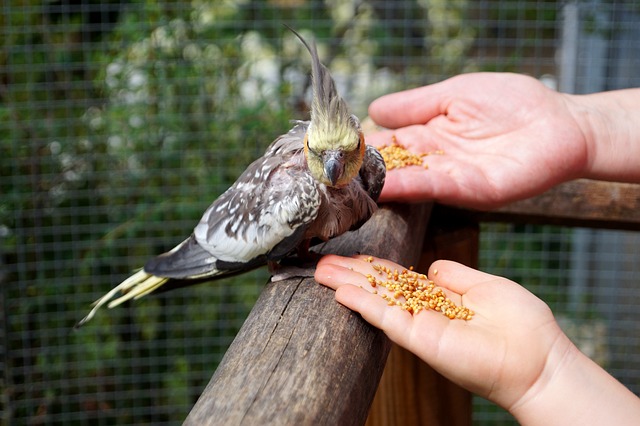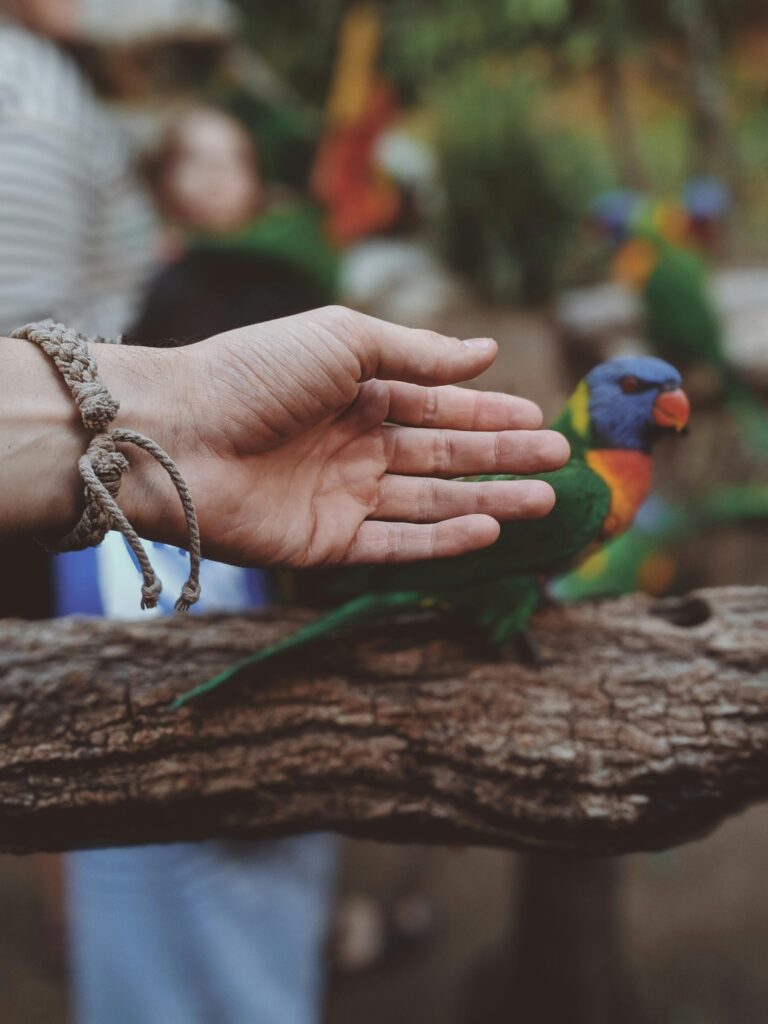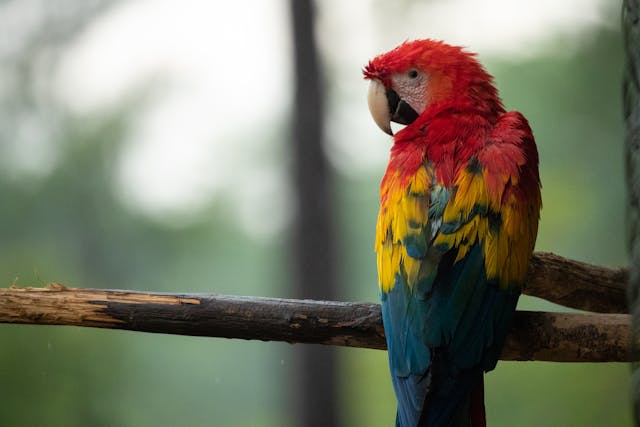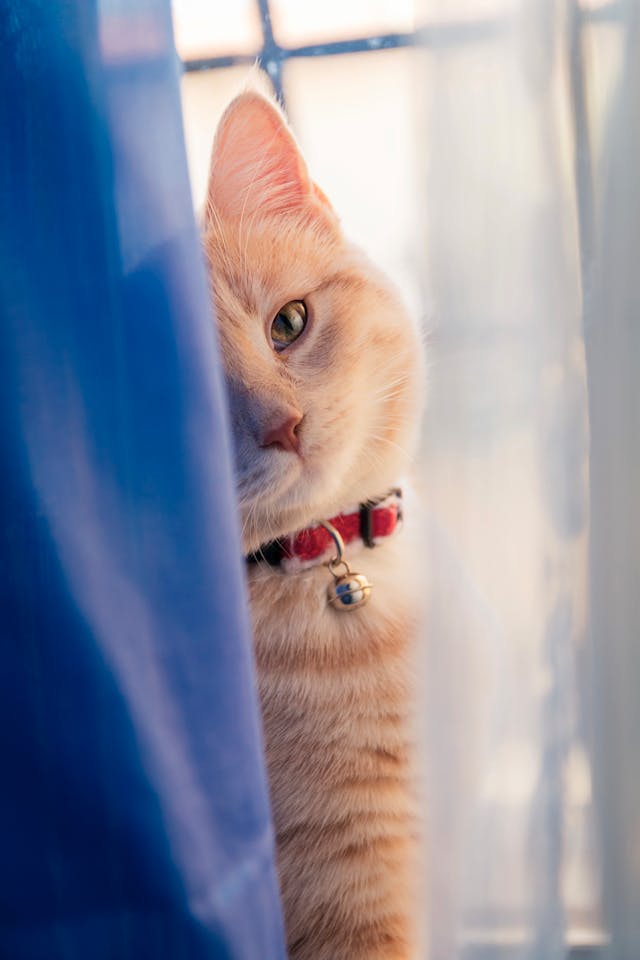Beautiful pets, birds captivate us with their vivid colours, musical tunes, and interesting personalities. Still, lifetime is a major consideration in selecting a pet bird. Living for several decades and creating close relationships with their owners, some birds can be lifetime friends. Examining which species often live the longest, their care needs, and what makes them such unique friends, this blog article explores the realm of long-lived pet birds.
Among the longest-living pet birds are parrots, especially Macaws and Cockatoos; their lifespans sometimes run over 50 years.
One could say that The lifetime of pet birds depends critically on a proper food, frequent veterinary treatment, and mental stimulation.
It is – Within species, lifespan can vary greatly depending on genetics, surroundings, and degree of care. Longer-living birds are often close friends with their owners, which makes them both fulfilling but demanding pets.
Regarding: Selecting a long-lived bird calls for serious thought of the commitment required, including preparations for their care should the owner become unable.
Introductions
Many times, those who enjoy birds dream of discovering a feathery acquaintance to be a lifetime friend. Although all birds make our life joyful and beautiful, several species are well-known for their astonishing lifetime. This blog post will look at which pet birds have the longest lifespans, what factors contribute to their longevity, and how prospective bird owners could guarantee they provide these amazing animals the best possible treatment.
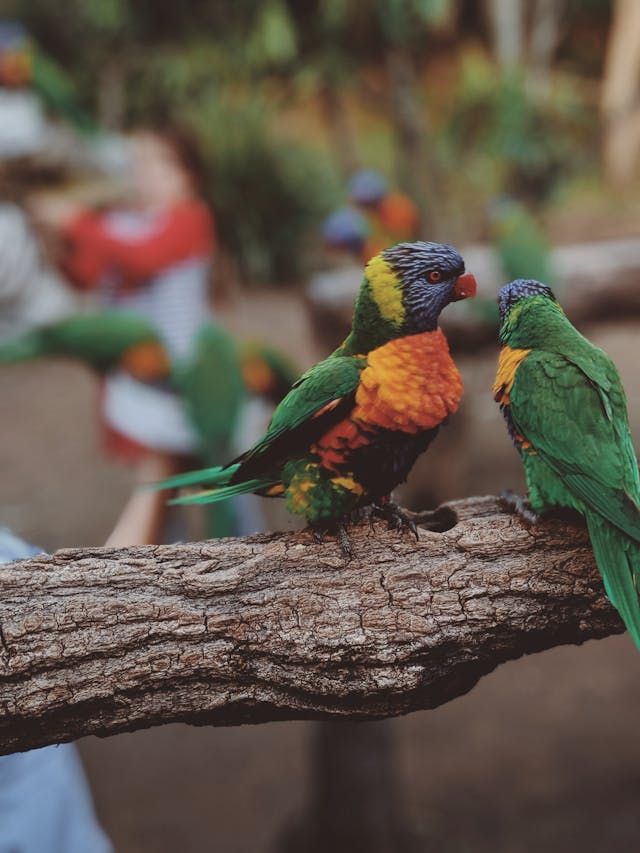
The Pet Birds with Longest Lifespans
Parrots are the unquestionably champs of long-lived pet birds. Parrots are exceptional among pets as many species have lifespans that would compete with those of humans. Let’s explore some of the most remarkable long-lived parrot species.
Macaws
When considering lifespan, first birds that spring to mind are usually macaws. Depending on their species and individual care, these big, vibrantly coloured parrots can live 50 to 100 years. For example, whereas the larger Hyacinth Macaw can live up to 80 years or more, the Blue and Gold Macaw usually lives for 50 to 60 years.
Not only are macaws long-lived birds, but they are also quite intelligent and gregarious. To keep healthy and content, they need a lot of cerebral stimulation, social engagement, and physical exercise. Their diet should be varied with fresh fruit, vegetables, nuts, and premium pellets. Owners also have to provide them lots of room to fly and play as well as frequent veterinary visits to maintain their ongoing health.
Cockatoos
Another parrot group with remarkable lifespans—often between 40 and 70 years or more—are cockatoos. Whereas the Umbrella Cockatoo usually lives between 50 and 60 years, the Sulphur-crested Cockatoo can live up to 70 years.
Affectionate and very gregarious birds, cockatoos create close relationships with their owners. Their demanding nature, meanwhile, makes them inappropriate for every home. To flourish they need a varied diet, cerebral stimulation, and major attention. If improperly cared for, cockatoos are also prone to behavioural problems; so, prospective owners should be ready for the commitment required.
African Grey Parrot
Though they are long-lived birds with lifespans ranging from 40 to 60 years, African Grey Parrots are well-known for their intelligence and capacity to replicate human speech. Red tails and remarkable grey plumage define these medium-sized parrots.
To keep African Grey Parrots interesting, their surroundings must be exciting and have lots of toys and activities. Their food should combine fresh fruits, veggies, nuts, and pellets. Monitoring their health and avoiding frequent problems include respiratory infections and feather plucking depend on regular veterinary treatment.
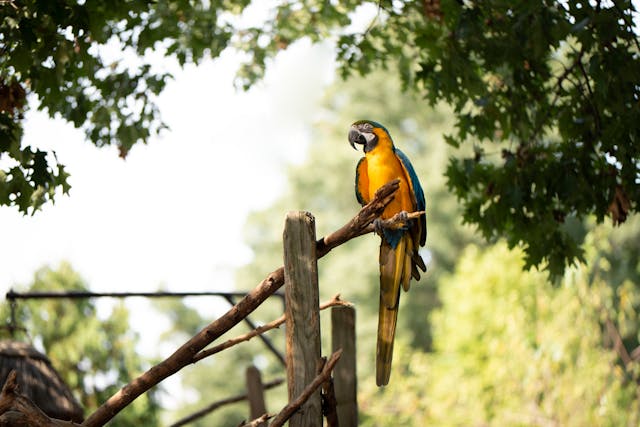
Things Affecting Longevity
Although some species are inclined to long lives, various factors affect the lifetime of a pet bird. Knowing these elements will enable bird owners to give their feather buddies the best possible care.
Diet
Pet bird health and lifespan depend on a balanced diet. Birds want a combination of premium pellets, fresh fruits, veggies, and nuts. Steer clear of giving birds diets heavy in seeds since this might cause obesity and other health problems. Offering a range of foods regularly guarantees they get all the required nutrients.
Environmental Context
The lifetime of a bird depends much on the surroundings. Large cages that let birds fly free and distribute their wings are absolutely vital. Toys, puzzles, and social contact provide cerebral stimulation as well for them. Maintaining a safe and clean living space helps avoid diseases and stress-related actions.
Veterinary Care
Maintaining a bird’s health requires regular veterinary visits. Birds may hide diseases effectively, hence regular tests help to find possible problems early on. To get suitable treatment and guidance, owners should choose a veterinarian knowledgeable in birds.
Mental Inviguation
Parrots and other intelligent birds need mental stimulation to avoid boredess and related behavioural issues. Your bird will remain cognitively active and happy if you offer a range of toys, teach fresh tricks, and spend time playing with it.
Owning a Long-Lived Bird: The Commitment
Having a long-lived bird requires a major commitment and frequently decades of care and attention. Potential owners have to take into account their capacity to support the bird over its lifetime, including making plans for circumstances whereby they might not be able to look for their pet. This could entail specifying a guardian or including clauses in a will guaranteeing the ongoing care of the bird.
Notes
Selecting a long-lived pet bird can be quite fulfilling since it provides many years of delight and company. Still, it also calls for a major dedication to their welfare. Understanding the elements that support a bird’s longevity and offering the best possible care will help owners to have a happy and long-lasting relationship with their flying companions.
Comprehensive Examining Long-Lived Pet Birds
Let’s examine some more species and what distinguishes them so that we may present a more complete picture of long-lived pet birds.
Amazon parrots
Usually living 40 to 60 years, Amazon parrots are distinguished by their vivid green feathers and lively personalities. Excellent mimics, these medium-sized parrots also like socialising. To flourish, Amazon parrots call for a balanced diet, consistent exercise, and lots of cerebral stimulation. They are prone to obesity hence it is imperative to keep an eye on their nutrition and promote physical exercise.
Eclectus parrots
With their dramatic sexual dimorphism—males are brilliant green, females are scarlet and purple—Eclectus parrots have 30 to 50 year lifespans. These parrots are renowned for their quiet and mild demeanour. Eclectus parrots profit from social engagement and environmental enrichment; their diet consists mostly in fruits, vegetables, and grains.
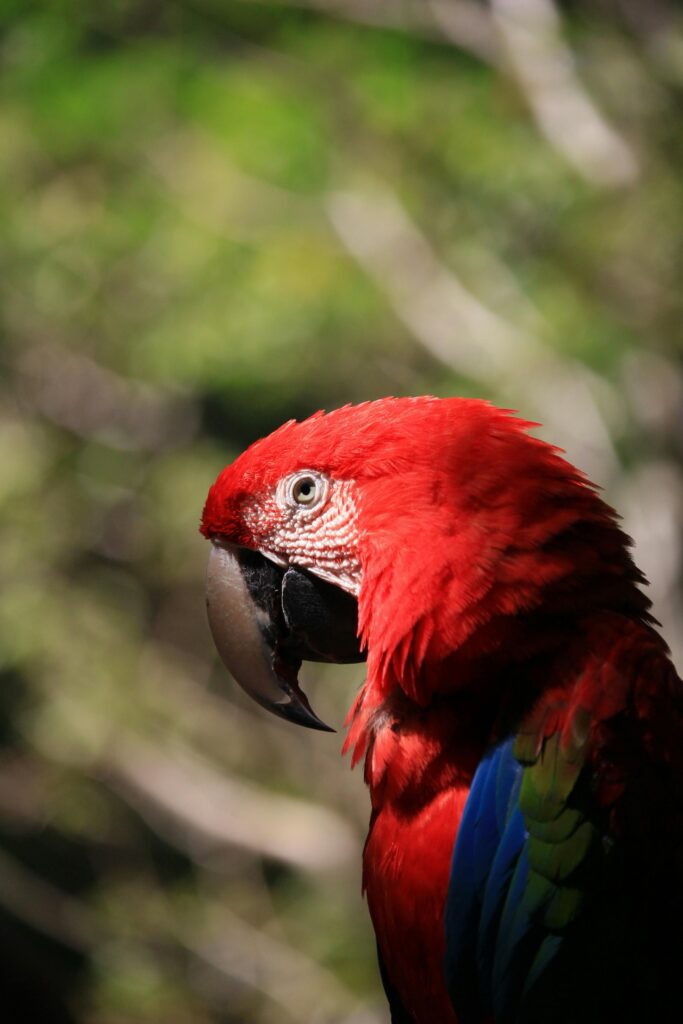
Pionus Parrots
Though less common, Pionus parrots make great pets because of their rather quiet attitude and reasonable size. Given appropriate care, they can survive 25 to 40 years. Pionus parrots require plenty of toys and activities to keep them busy and have a diversified diet. First-time bird owners would like them since they are less prone than other parrot species to behavioural problems.
Advice for Long-lived Pet Birds
Food and Nutrition
The foundation of a bird’s diet should be pets since they offer balanced nutrition.
Including a range of fruits and vegetables can help you to provide minerals and vitamins.Given their great fat content, nuts and seeds should be sparingly given as snacks.
Make sure you always have fresh, pure water available.
Habitat
Choose the biggest cage you can to let free movement and exercise possible.
Offer a range of perches to help foot health.
Rotate toys often to keep boredom from setting in.
Medical Treatments
Plan yearly veterinary visits to early on identify possible health problems.
Watch your bird every day for symptoms of disease include changes in behaviour, hunger, or droppings.Regular bathing and grooming will help you to keep the feathers, beak, and nails of your bird.
Social Communication
Daily interactions with your bird will help you to deepen your bond.
Instruct your bird in orders and tricks to provide mental stimulation.
If your pet is social and likes the company of other birds, think about acquiring another bird.
Final Thought
Though they demand committed care and attention, long-lived pet birds can bring decades of happiness and company. Bird owners can savour the fulfilling experience of sharing their life with these amazing animals by selecting the appropriate species, offering a healthy meal, guaranteeing a stimulating surroundings, and pledging consistent veterinary treatment. Recall that having a long-lived bird is a lifetime relationship rather than only a pet ownership one.
